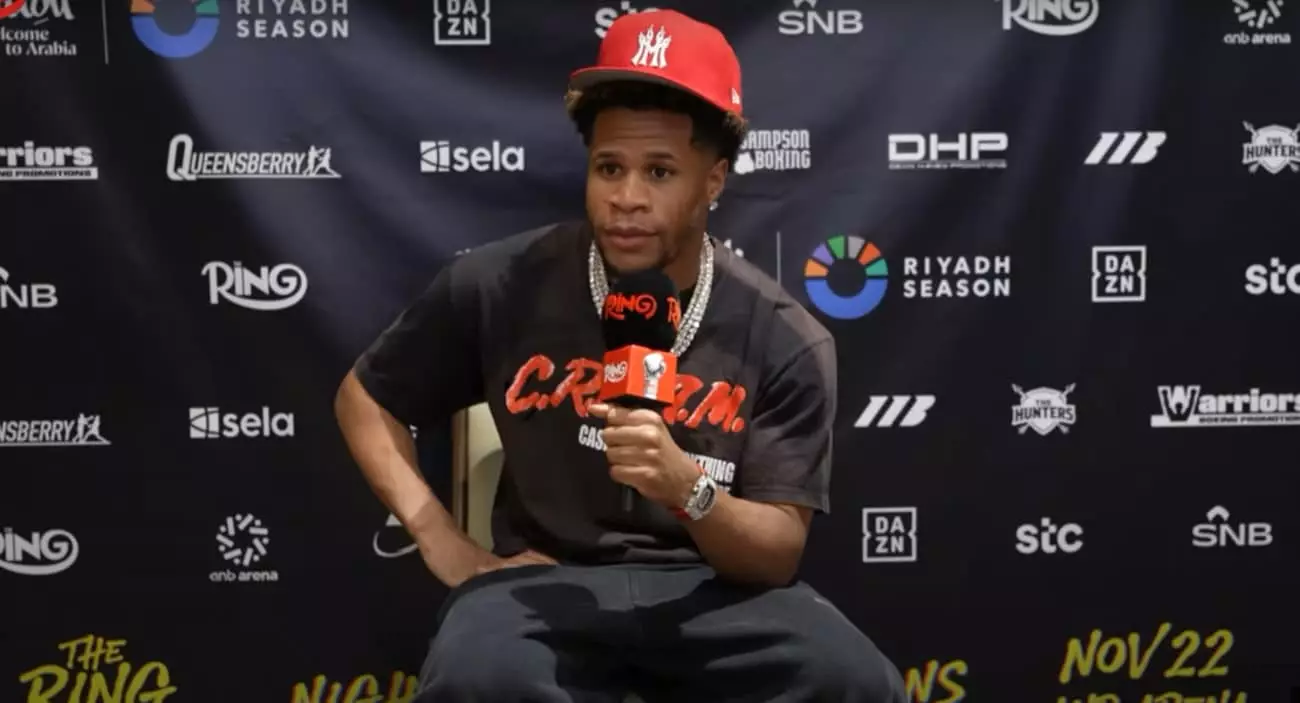Devin Haney’s assertion that he will prove himself “levels above” WBO welterweight champion Brian Norman Jr. by November 22nd is packed with bravado. While confidence is vital in boxing, Haney’s rhetoric borders on hubris, and therein lies a fundamental flaw: overestimating one’s dominance without considering the nuances of the sport. His claim that Norman Jr. is vastly inexperienced at the top level undermines the reality that boxing remains unpredictable. A fighter’s inexperience does not necessarily equate to weakness. In fact, Norman Jr. may bring a freshness and hunger that can disrupt expectations. Haney’s narrative hinges on the premise that he is superior solely because he has faced “better” opponents, but this oversimplification ignores the reality that fight dynamics are often unpredictable and highly situational.
Assessing the False Pinnacles of Victory
Haney’s dismissive comments about Norman Jr.’s opponents reveal a tendency to downplay the quality of competition outside of his own deluded perception. He questions the legitimacy of Norman Jr.’s resume by claiming he’s fought unknown fighters, yet this echoes a common misconception among fighters who dismiss their opponents pre-fight. If Haney is to genuinely elevate himself, he must face and perhaps beat fighters like Ryan Garcia, Shakhram Giyasov, or Rolly Romero—fighters with their own credible credentials and fan followings. Real greatness, especially in boxing, is measured by your ability to adapt, overcome adversity, and consistently defeat high-caliber opponents, not just by claiming to have done so. Haney’s narrative fails to recognize that an impressive victory is constructed over more than just name recognition; it’s about skill, resilience, and the capacity to evolve mid-fight.
Experience vs. Youth: A Shaky Premise
Haney’s claim of being a “young OG” who will consistently show his superiority by standing tall against Norman Jr. ignores the crucial element of ring maturity and adaptability. Despite his confidence, Haney’s résumé reveals a series of fights against older, sometimes past-their-prime opponents, often criticized for their in-ring durability or ability to challenge him at his best. His win over Vasily Lomachenko, for example, was clouded by controversy; many observers felt Lomachenko deserved the decision. Comparing Lalchenko’s experience to Norman Jr.’s inexperience is misleading because the quality of a fighter’s prime, adaptability, and mental toughness can often transcend mere years in the ring.
Moreover, the assertion that Norman Jr. is “first time fighting a top-level guy” simplifies the complex ladder of professional boxing. Norman Jr., regardless of his current status, has his own set of skills and unique attributes that can surprise even hardened pundits. It’s naïve to assume youth and inexperience automatically equate to defeat, especially when the sport’s history is replete with underdog stories where the less experienced emerged victorious.
Playing to the Judges: The Art of Performance
The fight’s locale in Riyadh adds another layer of complexity. When judges are influenced by a promotion’s desire for entertainment—an aspect often overlooked—fighters are under additional pressure to perform not just to win, but to impress. Haney must realize that fighting conservatively or relying on tactical boxing against Norman Jr. could backfire if the judges favor aggression and engagement. If Haney plays it safe or attempts to drain his opponent by outpointing him, the decision could swing against him, especially if Norman Jr. fights with the same zeal he has shown previously.
This setup exposes a critical flaw in Haney’s bravado: the ego-driven desire to dominate could inadvertently lead him to underestimate the importance of adaptability and entertainment in a modern boxing environment. If he hopes to cement his claim as the “best,” he needs to be prepared for a fight that displays not just technical superiority but also the grit of a warrior willing to engage and entertain.
The Reality of Boxing: Surprises Are the Norm
Ultimately, Devin Haney’s proclamation is more a reflection of confidence than a measured assessment of the competitive landscape. While it’s important for fighters to believe in their abilities, it’s equally essential they acknowledge that boxing’s unpredictability often renders certainty impossible. Norman Jr.’s potential to upset offers a reminder that fighters should be evaluated in terms of their skill and resilience, not just their current record or perceived readiness.
Haney’s challenge will be to match his self-assured words with consistent, intelligent performance inside the ring. His history suggests he can sometimes rely too heavily on physical talent or tactical boxing, which might not be enough if he underestimates an opponent’s grit and unconventional fighting style. If he truly aims to elevate his status and claim the mantle of “best,” he must shed the hubris and demonstrate that his will, adaptability, and fight IQ are truly unrivaled—something words alone cannot guarantee.

